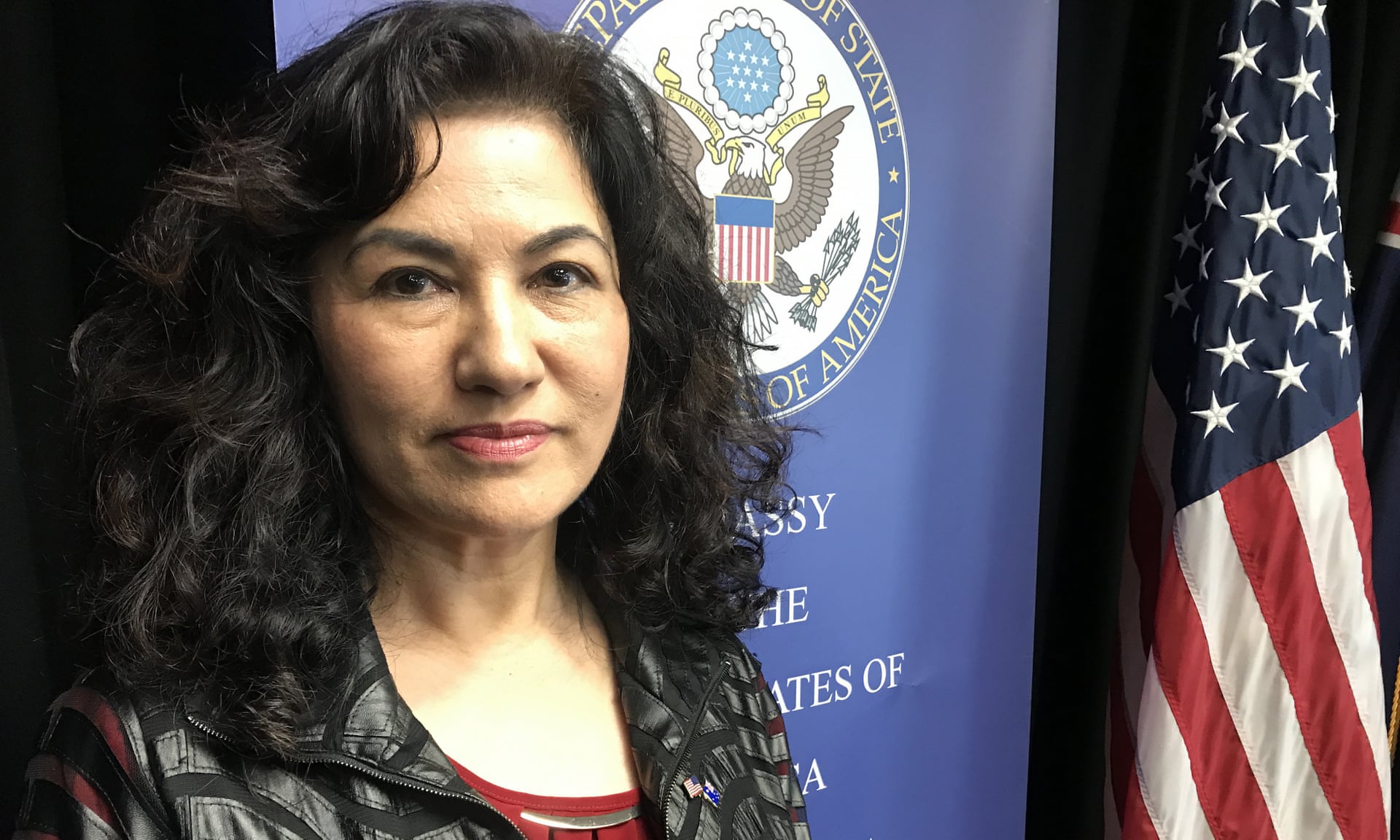By Omer Kanat
In 2017, three days before Human Rights Day on December 10, Beijing hosted the ‘South-South Human Rights Forum.’
The event took place as the Chinese authorities were interning vast numbers of Uyghurs and other Turkic peoples in concentration camps.
More than 300 delegates from 70 countries attended.
The outcome document, the ‘Beijing Declaration,’ affirmed states should “choose a human rights development path or guarantee model that suits its specific conditions.”
In sum, China sought an international clearance for the concept of ‘human rights with Chinese characteristics’ sublimating individual and collective freedoms to the needs of the state.

The world is learning quickly about the Chinese Communist Party’s vision of human rights.

The world is learning quickly about the Chinese Communist Party’s vision of human rights.
In East Turkestan, Hong Kong, Tibet, Southern Mongolia, Taiwan, and China’s heartland, the Chinese government has met any opposition with repression and destabilization.
Indeed, the application of the latest technologies to create a pervasive system of surveillance indicates the party has taken the step of preempting any resistance to its authoritarian rule.
The recent leaks of government documents to the International Consortium of Investigative Journalists and The New York Times lay bare how the party intends to commit cultural genocide against the Uyghur people through “no mercy” policies.
The label ‘human rights with Chinese characteristics’ is a misnomer.
The label ‘human rights with Chinese characteristics’ is a misnomer.
It is how the Chinese Communist Party attempts to entangle the interests of Chinese people with the logics of their continued power.
If it was at all possible, just ask any one of the imprisoned Chinese human rights lawyers how they feel about “the socialist rule of law with Chinese characteristics and human rights protection.”
However, the imposition of the party’s vision of human rights does not stop at China’s borders.
The profitable export of surveillance technology enables states to restrict the fundamental human rights of individuals on every continent.

A boy wearing a blue mask with tears of blood takes part in a protest march of ethnic Uighurs asking for the European Union to call upon China to respect human rights in the Chinese East Turkestan colony and ask for the closure of “re-education center” where Uighurs are detained, during a demonstration around the EU institutions in Brussels on April 27, 2018.
Human Rights Day commemorates the day the United Nations adopted the Universal Declaration of Human Rights (UDHR), a foundational document outlining rights standards and translated into over 500 languages, including Uyghur.

A boy wearing a blue mask with tears of blood takes part in a protest march of ethnic Uighurs asking for the European Union to call upon China to respect human rights in the Chinese East Turkestan colony and ask for the closure of “re-education center” where Uighurs are detained, during a demonstration around the EU institutions in Brussels on April 27, 2018.
Human Rights Day commemorates the day the United Nations adopted the Universal Declaration of Human Rights (UDHR), a foundational document outlining rights standards and translated into over 500 languages, including Uyghur.
It’s worth revisiting the 30 articles of the UDHR.
From Article 5, “No one shall be subjected to torture or to cruel, inhuman or degrading treatment or punishment,” to Article 9, “No one shall be subjected to arbitrary arrest, detention or exile,” to Article 20, “Everyone has the right to freedom of peaceful assembly and association,” China is in open violation of these fundamental rights in regards to the Uyghur people.
It is, therefore, no surprise the Chinese government is actively subverting the concept of universal human rights by cooking up its own version.
It is, therefore, no surprise the Chinese government is actively subverting the concept of universal human rights by cooking up its own version.
Since 2017, evidence of mass arbitrary detention and torture of Uyghurs and other Turkic peoples has become indisputable.
The Chinese government has rationalized these crimes against humanity within the logics of ‘vocational training,’ as if the systemic ethnocide of their people was somehow in the interests of the Uyghurs.

File photo posted by the East Turkestan Judicial Administration to its WeChat account.
However, the Chinese Communist Party does not limit the spread of its concept of human rights to events such as the South-South Human Rights Forum.

File photo posted by the East Turkestan Judicial Administration to its WeChat account.
However, the Chinese Communist Party does not limit the spread of its concept of human rights to events such as the South-South Human Rights Forum.
More alarming, Beijing is leveraging the United Nations itself to undermine the standards set out in the UDHR.
In recent years, China has been able to mute criticism, as well as find champions for its rights abuses among UN member states.
This has been partly achieved through an exchange of loans and grants for silence and support, as well as threats and intimidation.
Furthermore, China has targeted individual human rights defenders.
Furthermore, China has targeted individual human rights defenders.
In 2017, China tried to prevent me from delivering my statement at the UN Permanent Forum on Indigenous Issues in New York, and at the 2019 Forum, it attempted to do the same to the President of the World Uyghur Congress Dolkun Isa.
In 2013, China detained Cao Shunli, who was on her way to attend China’s Universal Periodic Review in 2013.
She was charged with illegal assembly, picking quarrels and provoking trouble and died in detention in 2014.
Remember, this is a state the UN Secretary-General has called “a pillar of international cooperation and multilateralism.”
Among the enablers of Xi Jinping’s repression are states with disreputable records attracted to a possible exemption from universal standards that ‘human rights with Chinese characteristics’ affords.
Among the enablers of Xi Jinping’s repression are states with disreputable records attracted to a possible exemption from universal standards that ‘human rights with Chinese characteristics’ affords.
And again, if we could freely ask the populations who reside in these states how they feel about such a concept, there would be few advocates.
Therefore, on Human Rights Day, we have a responsibility to defend those who defend universal values and be clear ‘never again’ has meaning.
There is injustice everywhere and we must fight it.
Uyghurs are among them, for example, the imprisoned Ilham Tohti, and in exile Rebiya Kadeer, Rushan Abbas, and Gulchehra Hoja, whose families have been detained and disappeared in East Turkestan because of their advocacy.
The second ‘South-South Human Rights Forum’ is opening in Shanghai for this year’s Human Rights Day.
The dangerous fiction of the ‘Beijing Declaration’ that there are exceptions to the universality of rights should be firmly resisted.
 Uighur activist Rushan Abbas: China is using its economic power to silence world criticism of its detention of 3 million Muslims.
Uighur activist Rushan Abbas: China is using its economic power to silence world criticism of its detention of 3 million Muslims.